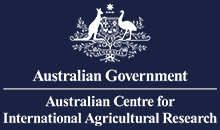by Stephanie Leder, WLE-IWMI, and Dipika Das, IWMI
In all project sides in the Eastern Gangetic Plains, we observed gendered divisions of labor in agriculture, as well as gendered norms in the villages on speaking up and mobility, which hinder women to take up tasks. Within this context, how can the groups work effectively as groups, being aware of those gendered restrictions?
Our aim was to develop a participatory gender training for our farmer groups in which farmers are sensitized to discuss these “gender issues”. Based on prior field work, we noted the need to raise awareness on gender roles and gendered behavior and how this influences the adoption of DSI4MTF interventions and trainings. Further we saw a need to increase farmer group interaction and empathy through discussions on collective support and increasing the willingness to mitigate the gendered division of labor within the groups. Lastly, we aimed at promoting bargaining skills which equip farmers to confidently negotiate with their group members and others in cases/management of conflicts.
The objectives of the gender training for farmers are:
- To uncover myths on women and men roles relevant in agriculture and the DSI4MTF project interventions by discussion and introducing the concepts of biological “sex” and socio-cultural “gender” through visual input, as this helps to interlink knowledge
- To enable farmers to understand the relativity of and changing gender division in reproductive and productive labor as well as community roles (triple work load); reflecting on women’s tasks with a life cycle approach
- To discuss gender factors which influence whether women or men become successful farmers
- To promote bargaining skills by encouraging role plays between male and female farmers
- To spontaneously integrate any issues which farmers might bring up in the training schedule
Based on these objectives, we developed, piloted, modified and implemented a gender training twice in Khoksar Parbaha and Koiladi, Saptari, in the Eastern Terai of Nepal. The training was tested with both male only (1 group), female only (2 groups) and male and female (1 group).
The training consisted of 3 activities and 2 discussions:
- Activity 1: Boy or Girl? – Understanding gendered constructions of community
- Activity 2: Gender Position Bar – discussing the gendered division of labor
- Discussion 1: Sex and gender
- Discussion 2: Visioning male and female successful farmers
- Activity 3: Role play – bargaining as the other gender
The following pictures illustrate our experiences during the gender training.
Briefing the support facilitators on the training structure
“Girls care for their parents when they are old, work hard and are birth of Laxmi (the Goddess of wealth), that means they will bring wealth” Activity 1: Boy or girl? – Understanding our own and our community’s constructions of gender, and that gender roles are already changing in agriculture in the last years and decades
Group work discussing boy or girl preferences – and noting that the reasons are actually rather similar
Gender Position Bar – discussing the gendered division of labor
Facilitating discussions in Koiladi
Whose task is it to dig, to irrigate, to transplant, to harvest, to take care of the elderly, to cook, to buy seeds….? Every farmer chose one picture, described it and placed it along the gender position bar, giving a reason for their choice.
The longer chain of activities indicates activities to be performed by both in future
A participatory approach means that every farmer is encouraged to express her or his views – we ensured this with the help of pictures. That way it was at one point every farmer’s turn
A female farmer group in Khoksar curiously looking at the pictures from the field
Farmers instantly developed their own story and characters for role plays: Impressions from the bargaining role play – female farmers playing male farmers in Khoksar Parbaha….
…and male farmers playing female farmers
Our male farmer group was very strong
Female farmer group in Koiladi after the training



















